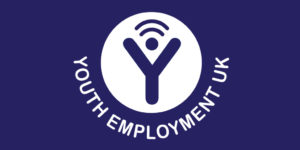School & College Advice
Not sure which school or college education options to choose? Thinking about exams or next steps after results day? We're here to help!
Choosing School Options at 14
In secondary school, you’ll be studying a range of subjects from what is known as your national curriculum. These are the subjects every student in your country has to study.
At some point in secondary school, usually when you’re around 13 or 14, you’ll get to choose which subjects you want to study further e.g. at GCSE or Scottish National Qualifications.
You’ll likely have to study the core subjects, which are English, maths, and science. You’ll then get to choose additional subjects that cover art and design, the humanities (geography and history), and modern foreign languages.
Studying a range of subjects helps you explore what topics you’re interested in, and this will help you choose your post-16 and post-18 education options.
Choosing School Options at 16
After you’ve completed Level 2 qualifications (GCSEs, SNQs etc), usually at age 16, you have the chance to study at Level 3 (in England it’s complusory to be in education or training until you are 18). The main options are going to sixth form or college to complete academic or vocational qualifications, or starting an apprenticeship.
Each option is different so it would be useful to research the pathways available to you to see what suits you best.
Before choosing what to do next, consider:
- What subjects did I enjoy in school?
- Do I think I will do well with this subject?
- Will studying this subject help me progress in the future? (i.e. will it help you in careers that interest you)
Vocational Options
Vocational study allow you to study towards qualifications (sometimes with less academic, more practical education) and depending on which vocational option you choose, you could get real-life work experience as part of your course.
You can mix vocational subjects with academic ones (like GCSEs). Whether you’re studying in school, college, or looking at getting a unviersity degree, there’s always an option for you to study with a vocational qualification (and count towards UCAS points too!)
Types of vocational qualifications include:
Explore Vocational SubjectsCollege and Further Education
This often has practical and hands-on learning that helps you build skills and knowledge in a career you might enjoy.
In college, you can do career-based qualifications to fast-track you into the world of work, or even do foundation degrees to prepare you for university.
What is College & FE College Advice
Latest School & College Advice
So what are you waiting for? Grab your future.





















